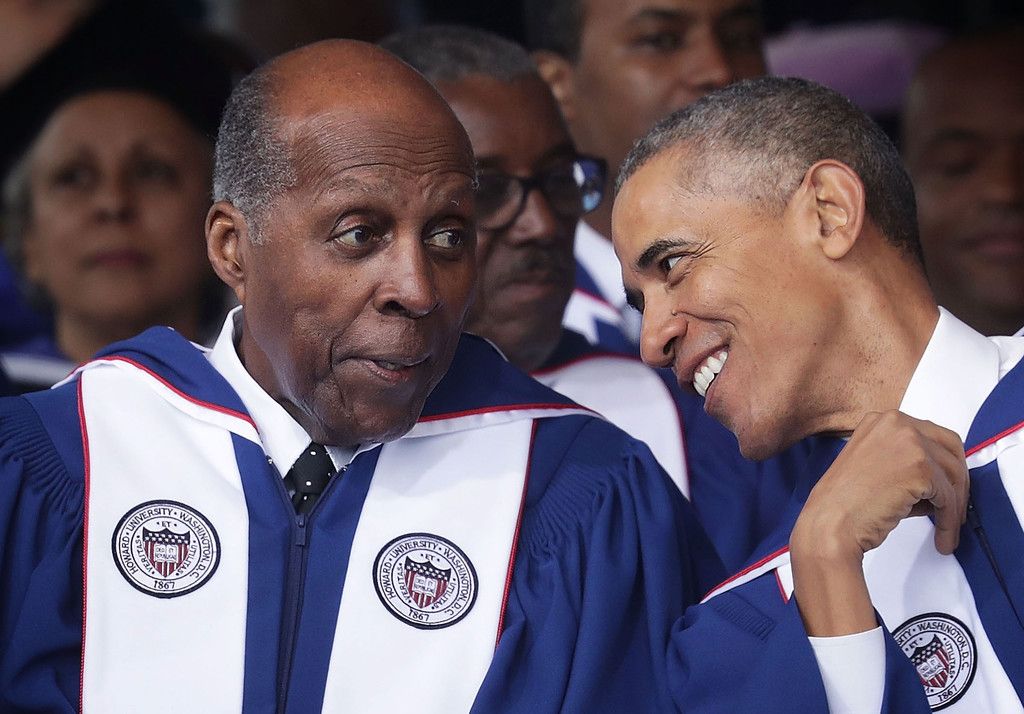Washington institution and a powerful lawyer-fixer will be missed
Vernon Jordan passed away on Monday at age 85. Jordan would become known as a Washington institution and a powerful lawyer-fixer who was famously close to the Clintons. Vernon Eulion Jordan Jr. was born Aug. 15, 1935, in Atlanta. His father was a postal worker on a military base. Mr. Jordan attended segregated schools, but he also was exposed to Atlanta’s elite White society while working for his mother’s successful catering business. At her urging, he left the South for college, attending DePauw University in Greencastle, Ind. He organized voter registration drives for Black residents of the region and became prominent in campus government and oratory.
During his summer breaks, he returned to Atlanta, working as a chauffeur and waiter for an aging Robert F. Maddox, who had been the city’s mayor from 1909 to 1911. Mr. Jordan sometimes read the books in Maddox’s voluminous library, prompting a rebuke from his boss.
Even after Mr. Jordan received permission to use the library, the former mayor told his family at dinner that he had an announcement to make: “Vernon can read.” Mr. Jordan never forgot the incident and used the backhanded comment as the title of his 2001 memoir.
After graduating in 1957 from DePauw, where he was the only Black member of his class, Mr. Jordan entered law school at Howard University in Washington. He graduated in 1960, then joined an Atlanta firm led by a prominent African American lawyer, Donald L. Hollowell.
The firm sued the University of Georgia on behalf of Charlayne Hunter, who became one of the college’s first two Black undergraduates in 1961. Mr. Jordan escorted her to class through jeering crowds.
In 1971 Jordan became executive director of the National Urban League where he oversaw a budget of $100 million and traveled extensively to raise money from corporate leaders to support programs aimed at improving Black life in the United States. He joined the boards of blue-chip companies including American Express, Xerox, Dow Jones & Co., Union Carbide and RJR Nabisco, and used his access to executives to encourage major companies to hire women and members of minority groups.
Early on the morning of May 29, 1980, after addressing an Urban League gathering, Mr. Jordan was shot in the back with a high-powered rifle after exiting a car in a parking lot in Fort Wayne, Ind. He was rushed to a hospital, where doctors managed to close a wound the size of a fist. Mr. Jordan noted that the surgeon, the internist and the anesthesiologist who treated him in Fort Wayne were African American. “Now what that suggests,” he said, “is that there has been some progress.”
During the 2008 presidential election, he supported Hillary Clinton over Obama, saying, “I’m too old to trade friendship for race.” Yet Obama joined Mr. Jordan on the golf course and clearly recognized his eminence. Each year, as business moguls and political luminaries descended on Washington for the annual dinner of the Alfalfa Club, there was one invitation that was even more exclusive: brunch at Mr. Jordan’s house. Warren Buffett, Bill Gates, Jeff Bezos and congressional leaders were likely to be there, rubbing elbows and sampling the omelets.
Even when Obama skipped the Alfalfa Club’s white-tie dinner, he made time to show up at Mr. Jordan’s brunch. He was a man of immense influence and he used that influence to enhance the lives of those in need. He will forever be missed.









